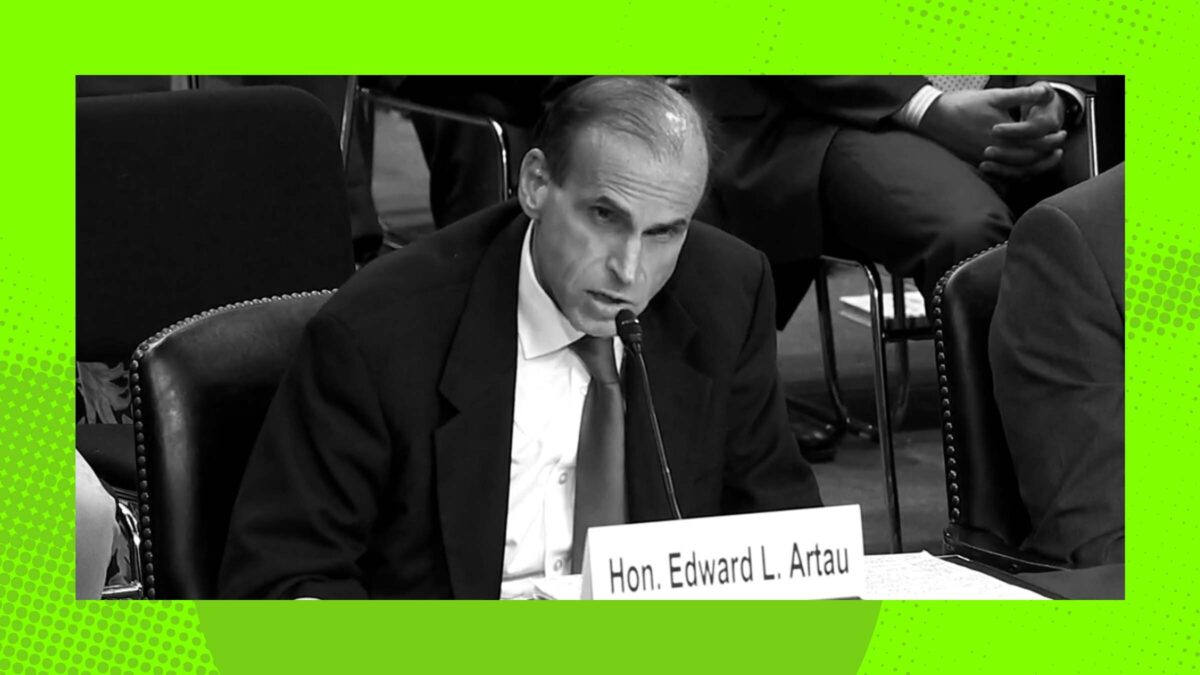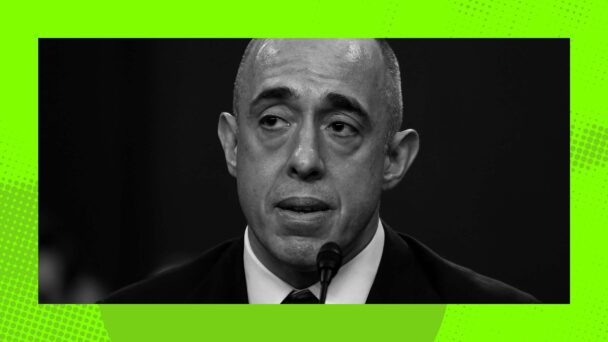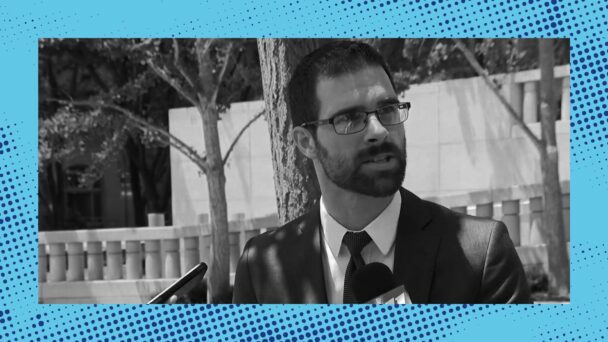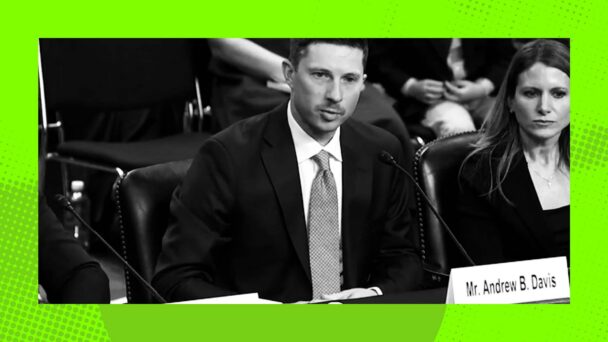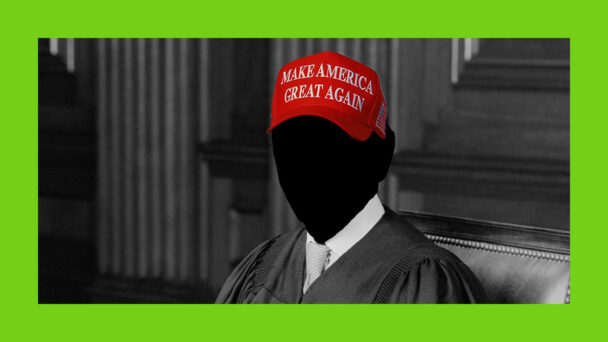In February, a three-judge panel of a Florida state appeals court held that President Donald Trump could sue the Pulitzer Prize Board for allegedly defaming him when it refused to rescind its awards to The New York Times and The Washington Post for their reporting on Russian interference in the 2016 election. That case, Alexander v. Trump, is one of several pending matters in which the President of the United States is trying to weaponize the legal system to punish media outlets that have had the temerity to cover him in ways that made him upset.
Merely allowing Trump’s lawsuit to move forward, though, was not enough for Judge Ed Artau, whom Florida Governor Ron DeSantis appointed to a state appeals court in 2020. Artau joined the majority opinion, but also wrote a separate concurrence in which he repeatedly referred to “debunked” allegations about Russian involvement in the 2016 election, and quoted Trump’s posts on X and Truth Social that described the subject as “FAKE NEWS,” a “phony Witch Hunt,” and a “big hoax.”
From there, Artau boldly called on the U.S. Supreme Court to overrule New York Times v. Sullivan, a 1964 case in which the Court created broad First Amendment protections for journalists who report on the conduct of public officials. Overturning Sullivan is a longtime pet project of the conservative legal movement, as demonstrated by Artau’s dozen-ish citations to opinions in which Justice Clarence Thomas had criticized the holding over the years. Artau made clear where he stands on the question, too: The Sullivan standard, he argued, is inconsistent with the conservative supermajority’s “history and tradition” test for determining the scope of legal rights, and cannot be “constitutionally justified” any longer.
Artau’s advocacy seems to have worked out for him: In May, Trump nominated him to a vacant district court judgeship in Florida, and on Wednesday, he appeared alongside three other Florida nominees for his Senate confirmation hearing. But according to his responses to written questions from the Senate Judiciary Committee, when Artau wrote his opinion in Alexander, he may have had reason to suspect that he was under consideration for a promotion already.

Artau (far left) is sworn in before the Senate Judiciary Committee on Wednesday (Screencap via SJC website)
Back in November, shortly after the 2024 election, Artau says that he reiterated his interest in becoming a federal judge to a friend in the office of Florida Republican Senator Rick Scott, who had interviewed Artau as a potential nominee several years earlier. Later, Artau approached the office of Senator Ashley Moody, who replaced Marco Rubio after his confirmation as Secretary of State, to convey the same. Both Scott and Moody agreed to recommend Artau to the White House, and sure enough, on February 27—about two weeks after he published his opinion in the Pulitzer Board case—Artau sat for an interview with the White House Counsel’s office.
A few months later, on May 27, Artau says he even got the privilege of meeting with Trump, who at last announced the nomination on Truth Social a day later. “Ed has a GREAT track record of restoring LAW AND ORDER and, most importantly, Common Sense (which is, sadly, rare these days!),” Trump wrote.
It is very unusual for presidents to personally interview a candidate for a lowly district court seat. Then again, it is very unusual for a candidate for a lowly district court seat to try out for the job via a gratuitous concurring opinion in which the candidate makes clear that in his view, the law should prevent journalists from being too mean to the man with the sole power to nominate him for the gig he wants.
At the time of Artau’s nomination, the Sun Sentinel (Fort Lauderdale) editorial board noted with concern that both he and another district court nominee, Justin Pratt, had recently authored opinions “sure to please” the president in their capacities as state court judges. “It would impugn their fitness to be federal judges if they knew at the time that Trump was considering them for the federal bench,” the board wrote, calling for senators at Artau’s confirmation hearing to ask a “familiar Washington question: What did you know and when did you know it?”
On Wednesday, Connecticut Democratic Senator Richard Blumenthal indeed broached the subject, asking Artau why he didn’t recuse himself from a case in which he hoped for a favor from one of the two parties before him. Artau replied that although he knew Scott’s office held him in “high regard,” and that he had recently “indicated” his continuing interest in a judgeship, he had no “communications or expectation” that he was under consideration when he issued the Alexander concurrence. In his written disclosures, Artau similarly asserted that during the vetting process, no one had discussed with him “any currently pending or specific case, legal issue or question in a manner that could reasonably be interpreted as seeking any express or implied assurances” about his positions going forward.
Assuming Artau’s responses are truthful, it is of course a relief to know that his concurrence wasn’t part of a quid pro quo arrangement. But his responses are also not inconsistent with him choosing of his own volition to treat the case as an opportunity to audition, knowing full well that Trump views judicial appointments as rewards to dole out to his political allies. Whether Artau literally had had “communications” with the powers that be before he wrote the opinion is sort of beside the point, because a judge lucky enough to be presiding over the Pulitzer Board case would not need to talk to Trump in order to know the sorts of things he’d like to hear. If you are an ambitious Republican lawyer trying to set yourself apart from other ambitious Republican lawyers, it is a pretty safe bet that writing a fawning concurrence that quotes Trump’s “phony Witch Hunt” rhetoric will bump your name to the top of the list.
For what is ostensibly a nonpartisan job, the work of making the shortlist for a judicial vacancy is and has always been political: go to a good law school, bill hours at a well-regarded law firm, take a leadership role in the local bar association, pick up an adjunct teaching gig at the nearest law school, cultivate strategic relationships with a few well-connected champions, and be ready to lobby your senators when the time is right.
But never has the process been as transparently transactional as it is right now, under a president who values nothing more in nominees than an unblemished record of loyalty to his agenda. In previous administrations, people who wanted to become judges would not risk doing what Artau did here, because they understood that pulling stunts like this one would invite hard questions that they could answer truthfully or persuasively, but not both. Aspiring Trump nominees have no reason to have any such concerns, because creating a howlingly obvious conflict of interest is not a red flag anymore. It is the smartest, surest way of getting what you want.
